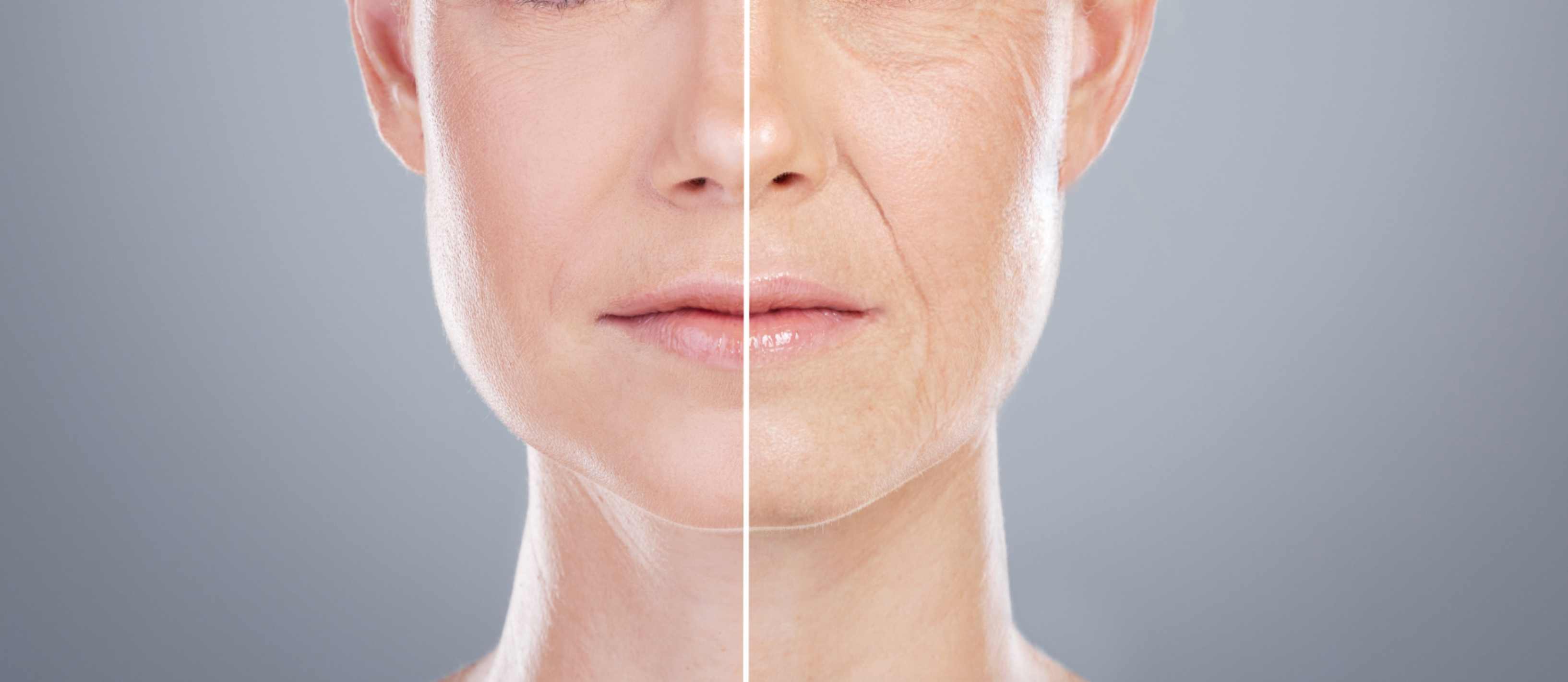Prepping Your Skin for the Holidays
With holiday parties, overindulgence and late nights aplenty, here are five ways to survive the festive season beautifully.
1. MANAGE DRY SKIN
Harsh conditions aren’t restricted to the outdoor skating rink and the ski slopes. When your furnace is on full blast and there’s minimal humidity in the air, you’re creating desert-like conditions for your face. “It takes a toll on our skin,” affirms Dr. Paul Cohen, a Toronto-based dermatologist at the Rosedale Dermatology Centre. “Overexposure to diverse temperatures can cause water to evaporate from our skin, “drying it of moisture and making it crack. When skin is dehydrated, it isn’t radiant and doesn’t glow. Your skin will start to appear rough and dry, and your complexion will look dull and lacklustre.”
What You Can Do
While our skin’s natural oils (sebums and lipids) are genetically programmed to kick in, lubricating our dermis and trapping moisture in the skin to create a protective barrier, your face still needs an ally: moisturizer. Rehydration is a must, confirms Dr. Lisa Kellett, a dermatologist at DLK on Avenue in Toronto. Lotions and creams containing humectants like hyaluronic acid and emollients, like vitamins A and E, shea butter and plant-based oils help combat the resulting transepidermal water loss and the shedding of the dead skin cells of the top layer of skin, says
Dr. Kellett. Plus, they’ll attract water to the dermis and lock it in. Make sure to “apply your moisturizer to wet or damp skin,” advises Dr. Kellett.“This will increase the absorption of it during the winter.”
2. FIGHT SKIN IRRITATION
It wouldn’t be the holidays if bottles of champagne weren’t flowing, followed by second helpings of sticky pudding for dessert. But sugar plays havoc with your face. “The danger with sugar is that it leads to systemic inflammation,” says Dr. Cohen. Typically found in alcohol, carbohydrates and sweet treats, consuming excess sugar can have you seeing spots. “Sugar causes acne by spiking your insulin levels, causing inflammation throughout the body, which aggravates your skin,” explains Dr. Cohen.
What You Can Do
Skin-care products and treatments formulated with low levels of glycolic acid, benzoyl peroxide, salicylic acid, AHA, BHA or retinol are your best bet. These ingredients help absorb excess oil, zap bacteria and heal targeted areas. You can even use “one per cent liquid retinol, which will give you the benefit of vitamin A,” says Dr. Kellett. “However, it should be titrated and applied to your moisturizer so that you can get the benefits without irritating your skin.”
3. LOOK WELL-RESTED
Between the dinner parties, late-night dancing and hours spent finishing last-minute projects—from wrapping the kids’ presents to finalizing a work presentation—the last thing you’re getting is sleep. Deprive yourself of zzzs and your complexion will suffer. “Beauty sleep is a real thing,” affirms Dr. Cohen. “When you skimp on sleep, it shows on your face. Tired skin sags. You may have puffiness around the eyes or bags. Lack of sleep also causes blood vessels to dilate, causing the look of dark under-eye circles.” Plus, your skin cells can’t work efficiently to replace old cells with new, fresher-looking versions.
What You Can Do
Smooth fine lines and weariness into oblivion with a mask or balm loaded with ingredients like silk tree and horse chestnut extracts and hyaluronic acid to reduce dark circles, puffiness and wrinkles. “It can deeply nourish your skin, helping it recover,” says Charmaine Cooper, education manager for The International Dermal Institute and Dermalogica Canada.
4. DON'T SHOW STRESS
We’ve all experienced holiday tension, whether it’s from excessive entertaining, family drama or financial worries. And this stress doesn’t just manifest psychologically; it has a physiological impact, too. “Your body releases stress hormones, including cortisol, that may increase your skin’s oil production, making you prone to breakouts,” explains Dr. Cohen. Naturally, it all shows on our face. “You name it: Eczema, hives, rosacea and psoriasis can all be aggravated by stress.”
What You Can Do
Because stress contributes to making our dermis more vulnerable to the environment, applying products replete with anti-inflammatory lavender, peptides and antioxidants like vitamins C and E, helps and are ideal for sensitive skin. “A vitamin C liquid with at least 20 per cent concentration can act as an antioxidant and reduce free-radical damage,” explains Dr. Kellett.



